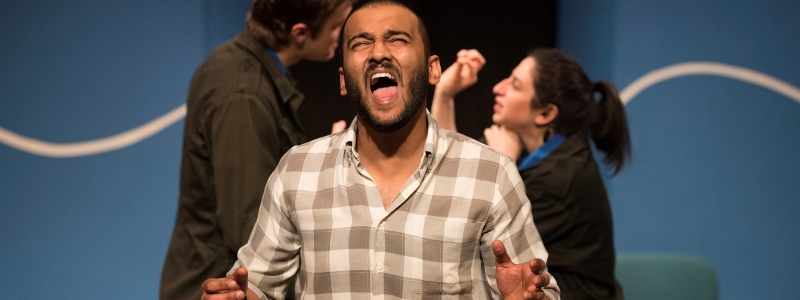Auditions and Applying

Applicants should check application requirements by referring to each individual school’s website, which will detail the process relevant to the institution.
Prior to this applicants will need to submit an application form to demonstrate educational achievement, relevant experience, interdisciplinary ability and communication skills. In general applicants will be asked to submit a completed form, photograph (performance courses only), audition or interview fee and academic/practical reference.
Many FDS schools run their courses through UCAS. For these, applicants must apply through the UCAS website. Instructions from each school may vary and they may have specific requirements that need to be met in addition to the UCAS form. Applicants applying through UCAS must also submit a personal statement. Some schools also process applications through UCAS CONSERVATOIRES (formerly CUKAS), which is now integrated into the UCAS site.
Once applications have been read, audition and interviews will be scheduled. Preliminary auditions/interviews are usually held between November-April each year. It is quite common for the selection process to have several stages (what is known as a recall audition) and for these stages to take place over several months.
Auditions and interviews
Acting and Musical Theatre programmes
FDS Schools will audition most applicants for acting and musical theatre programmes as this is considered the best way to gauge students’ potential. Applicants will normally be expected to prepare one or two short speeches and to perform without a script. Each school will outline their requirements but speeches are generally between two and three minutes in length and should be classical and modern pieces that contrast in mood and tone. Applicants may be asked to take part in improvisation and voice sessions. Musical Theatre programme applicants will also be expected to sing (usually two contrasting songs) and may attend a dance/movement workshop.
Everyone is nervous at an audition. The audition panel is not looking for a polished performance, more an understanding of character and the ability to connect to the speech or song with intelligence or feeling. The panel may ask applicants to perform the speech or song again in a different way to evaluate their ability to respond to direction. Audition days can also provide an opportunity for applicants to ask questions and get a feel for the premises and location.
Technical Theatre programmes
Most schools select by interview for technical theatre courses. Applicants will be asked to present a work portfolio (e.g. sketches, models, photographs, prompt books, costume, light, sound and set designs). Interviews may last all day and could include discussions, group exercises, a tour of the school and the opportunity to talk to and view the work of students already on the programme.
It is important to be clear about what is required of you for audition and interviews. When making an application for a programme the individual school will give you full details of how to apply and what is required, as well as the costs involved. If you are unsure then contact the Admissions Office. The more information you have, the more prepared you will be.
